What Causes Cancer in Cats?
Cancer in cats can get in the picture without a warning. When you receive a diagnosis of cancer for your pet, the first question is often “why?”
If you're anything like most cat parents, chances are you would want to know the common causes of cancer in felines. Besides helping him keep clear of this very serious health problem, you will also maintain your cat's quality of life in the process.
In this follow-up article, we are going to look at the common causes of cancer in cats, as well as some clinical signs of feline cancer while we're at it.
We'd just like to emphasize as early as now that these cat cancer symptoms may be a bit tricky to spot at times since felines have a talent for hiding illness—but we've got simple and practical tips on how to get around this.
Make sure you check out our complete guide to cancer in cats to learn more about the types of cancer that affect our feline friends as well as other useful bits and pieces.
So how about we kick things off with a quick overview of feline cancer?
Cat Cancer in a Nutshell (Like Squamous Cell Carcinoma)
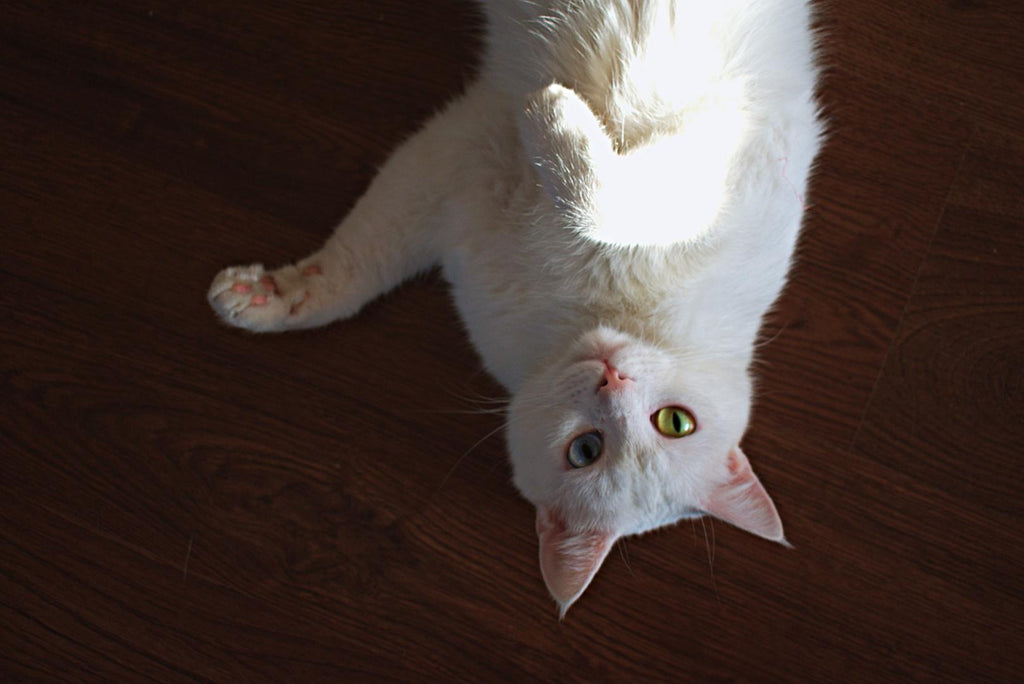
At its simplest, cat cancer is a disease set off by the uncontrolled growth and development of abnormal cells. These abnormal cells may just stay in one place or possibly spread to other parts of the body.
Treating cancer is much more manageable (and the success rate is higher, too) when it's caught early. This is the biggest reason why we've also included a quick guide on the common signs to keep an eye on when it comes to cancer in cats.
Are tumors the same as feline cancer?
The answer is no.
Tumors are masses of abnormal tissue that tend to form lumps. The most common examples that can affect felines include mammary tumors and skin tumors. They can also affect internal organs and the oral cavity.
However, it is important to remember that not all lumps you find on your feline friend should already be deemed as a tumor.
Are all tumors cancerous?
Again, the answer is no.
There are two (2) types of tumors: benign tumours and malignant tumors. While a benign tumour can become quite large, it will just remain in one place and won't affect the surrounding tissues. On the other hand, a malignant tumor tends to spread to other parts of the body.
Additionally, many types of feline cancer can stem from malignant tumors, like those affecting the mammary glands. Whether it's benign or malignant, though, the obvious signs of tumors in cats are the presence of suspicious lumps and bumps.
Can cancer in cats affect the bone marrow?
Yes, cancer cells can also invade a cat's bone marrow. This is often the case for feline cancers of the lymphatic system and myeloma, which target the plasma cells.
It is important to remember that the white blood cell is made in the bone marrow. White blood cells play a role in a cat's overall immune system. Having a very low or very high white blood cell count can mean health issues for your feline companion.
The Possible Causes of Cancer in Cats
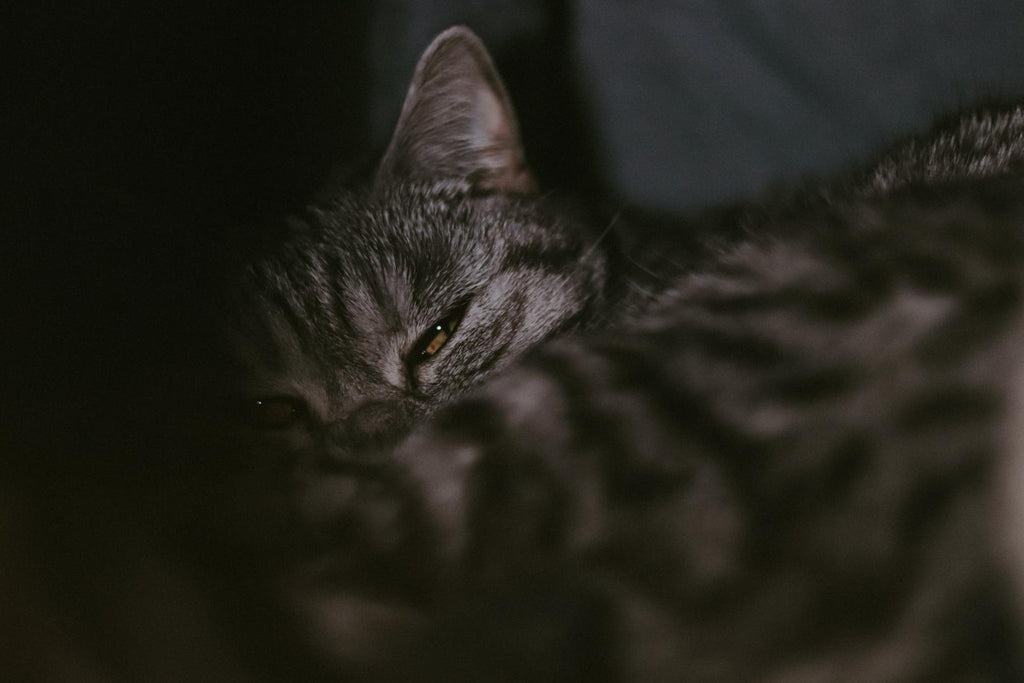
Each type of tumor or cancer that affects cats has different causes or risk factors.
Even with the modern strides in veterinary medicine, it is still difficult to identify a specific reason why cats develop cancer. However, there are three (3) general risk factors to consider when it comes to cat cancer, which are as follows:
-
Hereditary/genetic factors (certain genes or breeds that tend to develop cancer more frequently);
-
Environmental factors (exposure to certain environments that can cause cancer more often); and
-
Age (cats of a certain age group are often at a higher risk for cancer)
Hereditary Causes of Cancer in Cats
While this may sound surprising, certain cat breeds are more vulnerable to particular forms of cancer in felines compared to their counterparts.
Some researchers believe that certain factors in their genes make them more at risk of developing a certain tumor or cancer, whichever is the case.
For example, Siamese cats have a higher risk for many cancers and can even be 8 times as likely to develop adenocarcinomas. Bengals and Persians are also seen to be more susceptible to squamous cell carcinomas.
(Learn more about the cat breeds that are prone to cancer.)
Environmental Causes of Feline Cats Cancer
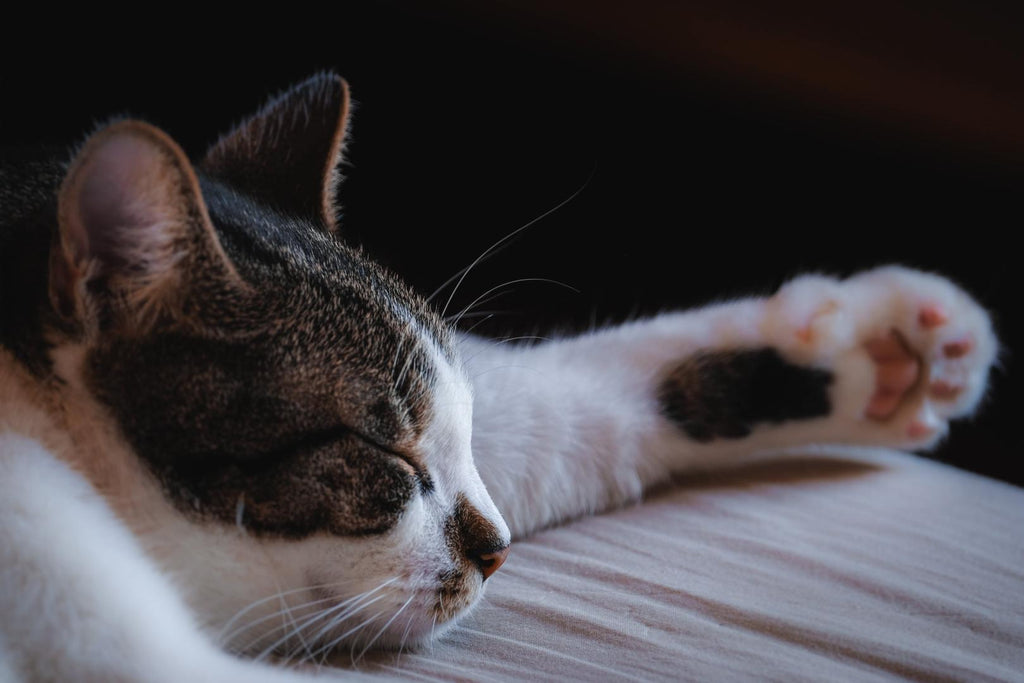
There are also environmental factors that play a role in the development of cancers and tumors in cats.
For example, as with humans, cigarette smoke has been linked to feline lung cancer. This also applies to emissions from vapes as well as constant exposure to harsh chemicals like weed killers, drain cleaners, and turpentine, among others.
Another example is breast cancer in cats, which primarily attacks the mammary glands. The biggest risk factor for developing this cancer is being "intact," or not being spayed.
Female cats spayed before 6 months can have up to 91% less chance of increased risk when it comes to developing this type of cancer.
How Age Is Related To Cat Cancer
The majority of cats that are diagnosed with cancer are middle-aged or older cats. Some researchers believe that there is a 50% chance of a cat developing a tumor or cancer by the time they are 10 years old!
While these are some risk factors to consider, any cat can develop a tumor or cancer at any age. These can be anything from soft tissue sarcomas, skin cancer, and mammary cancer to squamous cell carcinoma and cancer of the lymph nodes.
It is important to keep your eyes open for signs that they are sick. This is crucial, especially when they're acting rather strange or have been intermittently hiding under the furniture for a few weeks now.
Can Feline Leukemia Virus Cause Feline Cancers?

Although the feline leukaemia virus (FeLV) is not a direct cause of many cat cancers per se, this disease can disrupt your pet's body and make it more susceptible to health concerns—which can include the possibility of developing tumors and cancer.
Additionally, akin to the feline leukaemia virus, the feline immunodeficiency virus (FIV) can also have a significant negative effect on a cat's overall immune system health. This can make your pet more prone to health problems, which can also involve cancers and tumors.
Making sure you boost your cat's immune system as early as now can help your feline best friend keep clear from FeLV and FIV.
How is a Proper Diagnosis for Cat's Cancer Determined?
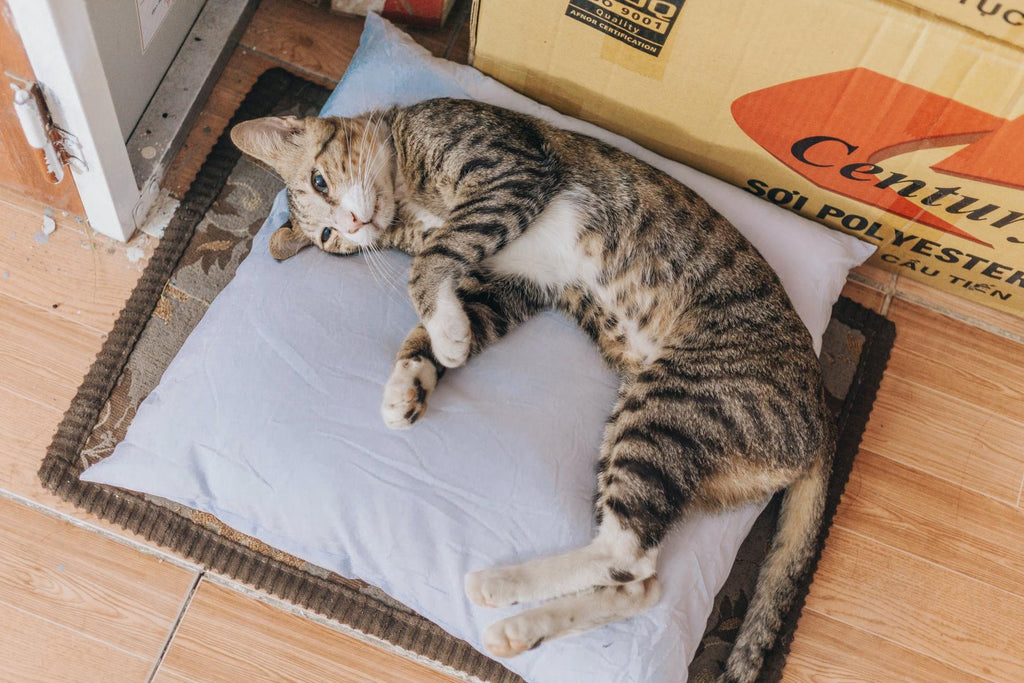
Just to emphasize, only your veterinarian can ascertain if your cat has cancer or not. Veterinary surgeons and oncologists can also help determine the same.
There are several diagnostic tools and procedures that will be used to do this, which depends on the type of cancer that your pet is affected with. Some of these include fine needle aspiration (FNA), x-rays, and the extraction of blood samples, among others.
Additional blood tests and similar further tests may also be performed to determine the most ideal cat cancer treatment options that be resorted to in a given case. Some veterinary medicine practitioners may even collect cells from a suspicious lump or lesion, like in the case of soft tissue sarcomas.
Cat Cancer Symptoms to Watch Out For

Being familiar with cat cancer symptoms is important so you can bring your pet to the veterinarian immediately for early treatment.
As we pointed out earlier, treating cancer at its early stages has a higher success rate compared to when it has already spread or metastasized.
Remember that each type of tumor affects different parts of the body, so there are often specific symptoms you can look out for. But there are also a number of general signs that your cat might be sick with cancer, such as:
-
Weight loss or a poor appetite
-
Difficulty eating
-
Issues in swallowing
-
Difficulty urinating and defecating
-
Lethargy or a lack of energy
-
A lump or bump, or an open wound that isn’t healing (common in soft tissue sarcoma)
-
A change in behavior or habits
-
Unexplained bleeding
-
Difficulty breathing
If you notice any of these symptoms, make sure to get your kitty checked out. However, we'd just like to stress that you observe your pet regularly since not all forms of weight loss and similar indicators that we've given above are already signs of cancer.
There might be a different health problem involved. Don't hesitate to consult with a pet homeopathy expert or a vet as soon as you can.
Why an Early Diagnosis of Cancer in Cats is Crucial
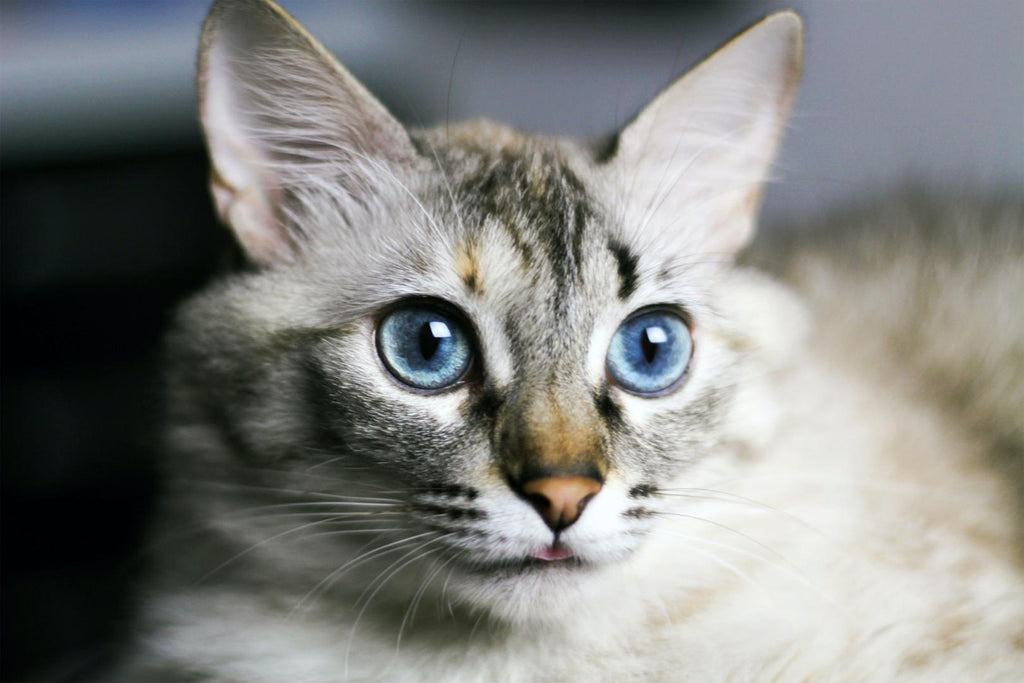
Getting an early diagnosis of cancer in felines is important since it helps deal with this health issue before it becomes really serious. This is usually the time when the cancerous cells still haven't done a lot of damage. It won't also be tricky to maintain your cat's healthy lifestyle at this point.
Overlooking the symptoms of cancers in cats or not providing immediate and proper care for this serious health concern will only lead to disaster sooner or later. Always remember that when it comes to feline cancer, earlier is better with respect to diagnosis.
Usual Treatment Options for Cancers that Affect Cats
These cancer treatment options include radiation therapy, chemotherapy, and surgery. Interestingly, all of them are patterned after conventional human medicine for dealing with cancerous cells and their negative effects.
As previously mentioned, further tests may be conducted like x-rays and the extraction of blood samples, to determine which treatment option is best for your kitty. Some cats are okay with radiation therapy, while others may be leaning toward chemo or even a combination of treatment options.
Treatment for Cat Cancer
Conventional treatments for cancer in cats can include surgery, chemotherapy, and radiation therapy. They may be used as a standalone treatment or may also be used simultaneously with one another.
But what's glaring with these conventional cancer treatments is that they can be invasive, painful, and very costly.
This is why many cat parents are also interested in exploring natural options for their furry friends when cancer gets in the picture.
That is why we are excited to tell you about PIPTOPET. It is a premium natural product that has been carefully designed by experts to help support your cat's pre-cancer diagnosis or when you have already received the terrible news.
Thousands of pet parents have used this PIPTOPET for their animal companions when fighting cancer or even after the cancer has already disappeared.
Isn't it time you zeroed in on a premium natural product that's designed to help support your cat during cancer without overspending? Make sure you consider including PIPTOPET in your home pet care checklist, especially if your feline best friend is suffering from cancer (or a tumor).
Do you have a cat that has suffered from cancer? Share your experience in the comments below!








Thank you for your comment and excellent question. I have forwarded your question to our team of Specialists who will respond to you via email.
What are your thoughts or knowledge about the Ivermectin, Fenbendazole wormer treatments for cats with cancer?
Leave a comment